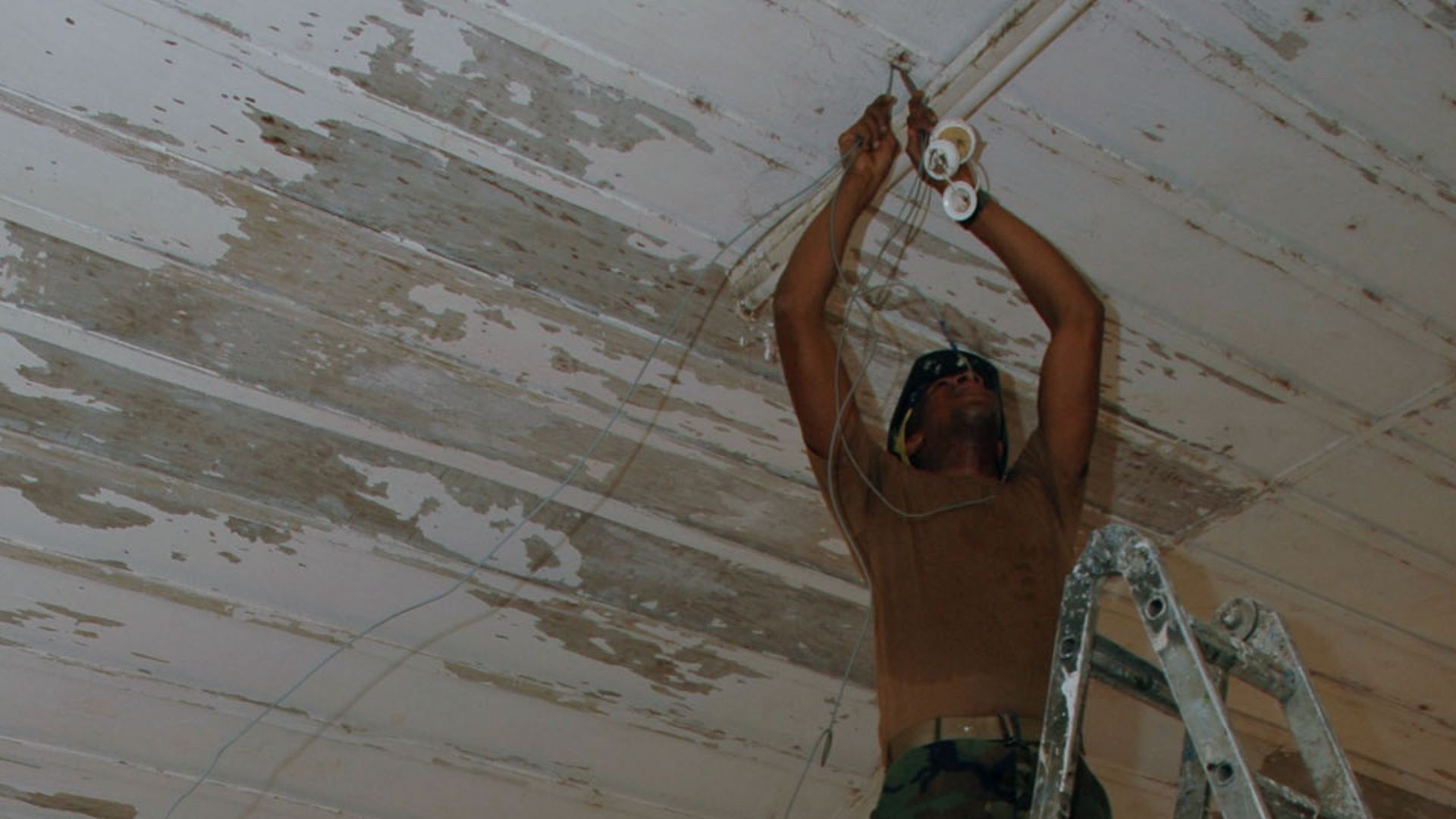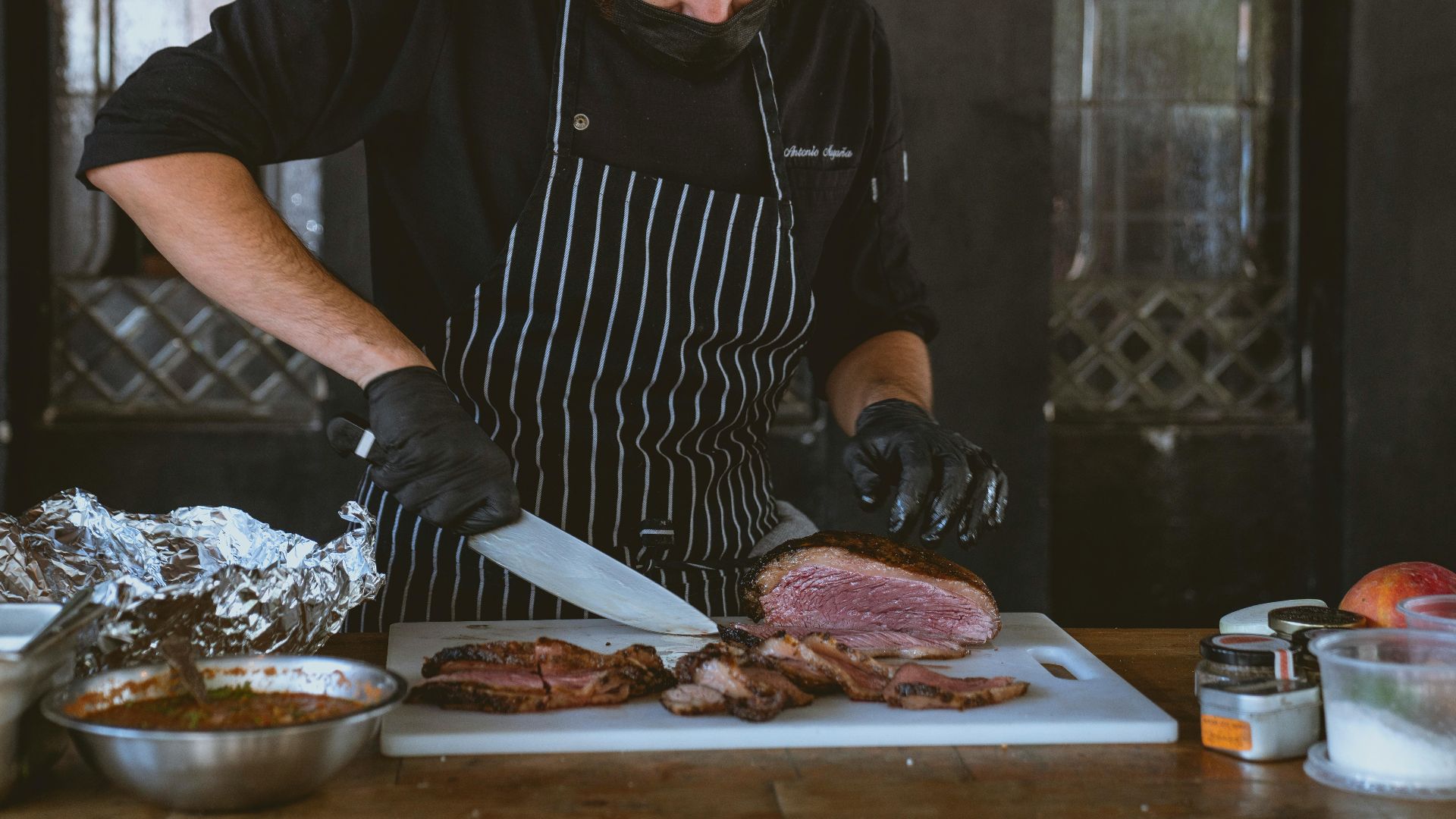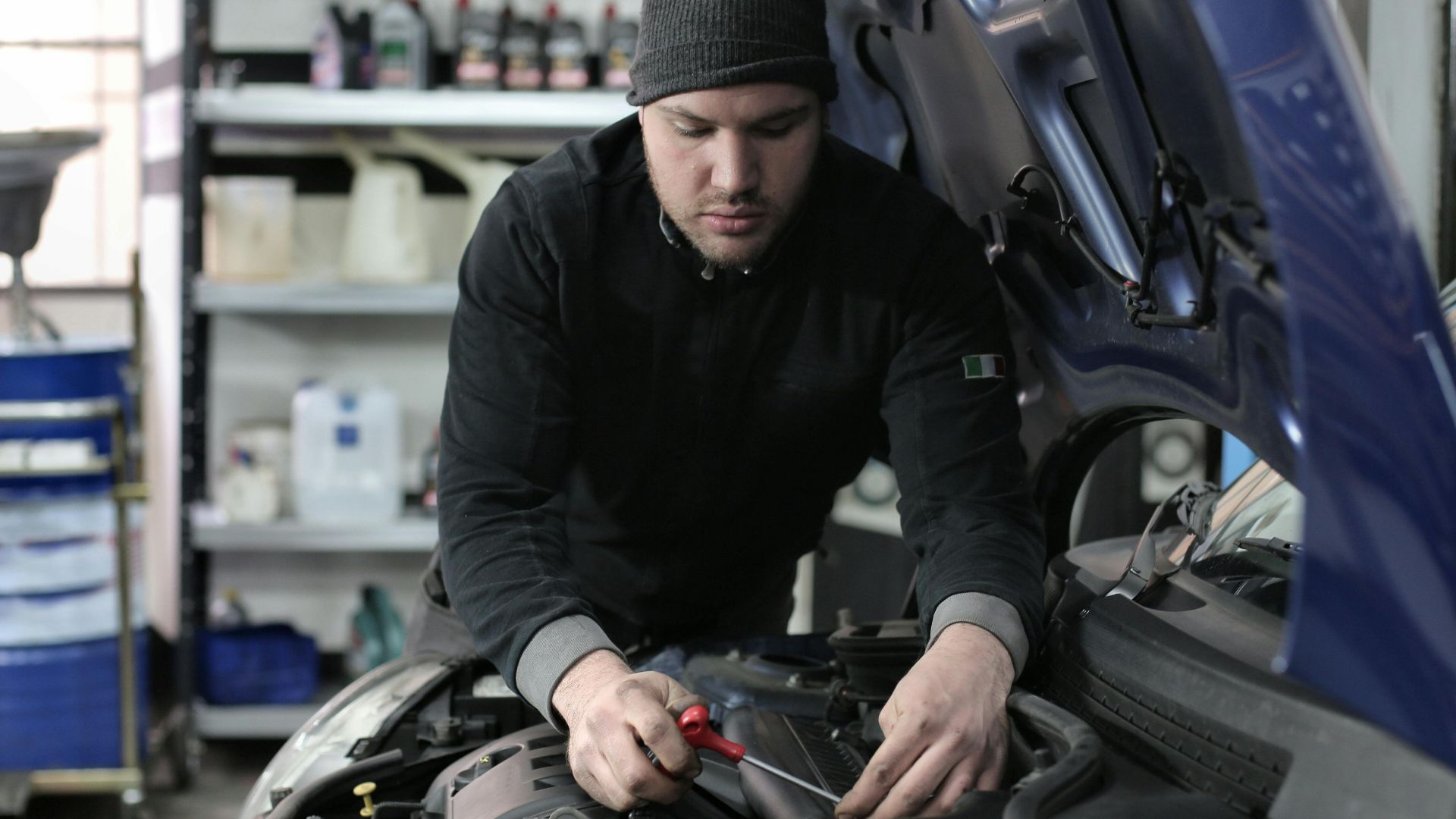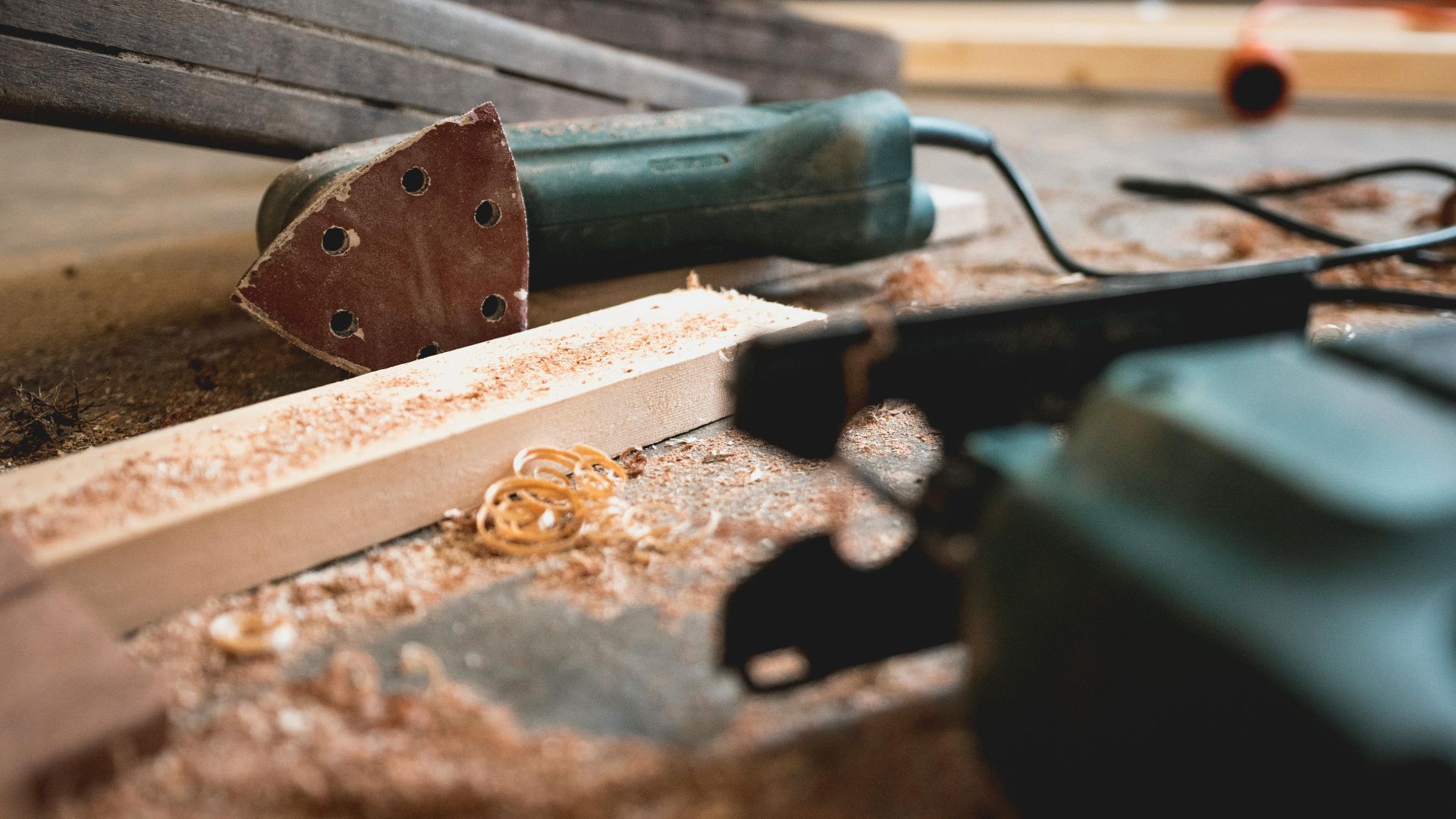Everyday Skills That Are Disappearing
A few generations ago, it seemed that everyone could pretty much do anything, from sewing a shirt to fixing a car to baking bread from scratch. Many traditional skills have been lost, some because they are redundant or archaic, while others see occasional revivals as people seek to learn old skills and become more self-sufficient. Here are a variety of lost skills, some no longer of interest while others may be worthwhile reviving.

Reading A Map
This one seemed to die overnight. With map apps and GPS, we can pretty much go anywhere by car without struggling with a massive, folded map. Yet not that long ago, a paper map was essential when driving on long trips.
Making Change
Not totally lost, but disappearing for certain. With paperless transactions taking over commerce, the idea of handing a cashier $20 and receiving $2.33 in change is becoming a rare occurrence. Experienced cashiers could do the mental math required to give customers accurate change, something that younger people working in retail may not experience too often.
Cursive Handwriting
This one seems to stick in the craw of older generations. At one time, cursive writing was mandatory and penmanship was considered a vital skill. For those of us old enough to have learned cursive, while some retained the skill into adulthood, many just gave up and resorted to a weird printing-cursive hybrid.
Using A Typewriter
Young people find it comical that there were typing classes in high school, sometimes a few levels of typing. It was a worthwhile skill but although we all use computers, we seem to resort to the hunting and pecking style instead. There were also mechanical and technical issues unique to using a typewriter and to this day you will still find older people needlessly putting double spaces after a full stop.
Driving A Stick Shift
In North America, this was always a bit of a niche skill given the prevalence of automatic cars. However, anyone who grew up on a farm or who drove a classic car or import, knew how to “drive a stick”. Although no longer necessary (and increasingly difficult to do as you get older), there are some who prefer manual transmissions as it gives a more visceral sense of driving.
Darkrooms
Digital photography killed the darkroom. Actually, it was slowly disappearing even when photographers were still using film cameras, as automating film processing became more common. However, there is something magical about taking some photographic paper and submerging it into pans filled with liquid, watching as the image slowly appears.
Home Economics And Shop
Many high schools still offer various hands-on technical courses, but the ubiquity of home ec and shop seems to be gone. At one time, boys took shop while girls took home economics, learning how to cook and sew, and although those are vital skills the gender separation was outdated by the 1980s. It seems silly now, girls learning to swing a hammer and boys learning to crack an egg was unheard of.
Transcribing
An essential secretarial skill traditionally has been transcribing, whether taking notes in a special written code called stenography (or shorthand), or listening to a tape and typing out what was said. With word-to-text and other technological advances, putting on old-fashioned earphones and typing for hours is long gone.
 Photography Maghradze PH, Pexels
Photography Maghradze PH, Pexels

History's most fascinating stories and darkest secrets, delivered to your inbox daily.
Masonry
Masonry today is mostly what is also called bricklaying: a vital and difficult-to-master skill for certain, but masonry was more than that in the past. When observing ancient cathedrals or even 19th and early 20th-century buildings, the elaborate brickwork, moldings, and other architectural details are skills from masonry that are mostly a thing of the past.
Remembering Phone Numbers
With smartphones and contact lists we don’t need to remember telephone numbers, and given that area codes are usually required, we just don’t bother to memorize 10 digits. Back when phones were rotaries and telephone books were a thing, people had several numbers committed to memory. Ask anyone over a certain age and odds are they still remember their childhood phone number.
Repairing TVs
Like much of our disposable culture, when your television stops working, that tends to be the end of it. At one time, though, people invested time and money into a crucial appliance for the family, and when it wasn’t working, a TV repairman would make a house call.
Bookkeeping
Bookkeeping is still a thing, but it is often handled by one person, sometimes on a part-time basis. At one time, though, bookkeeping was a high-demand job, and companies would have several people working full-time working on handwritten ledgers.
Film Projectors
Movie theaters still use projectors of course, but they are now digital. Up until quite recently, film projectors used actual film, and feature movies would use more than one to seamlessly transition between reels of film. It was a real skill to be a projectionist as you would have to do much of the work on the fly, making quick edits directly on the film, and troubleshooting massive 35 mm projectors without interrupting the audience’s experience.
Programming In HTML
This is a recent skill to have but not that long ago, if you wanted to make a website, you needed to know HTML. This took some time to learn, and people would take college courses in HTML programming. Websites have become more complicated (commercial websites are more than just HTML programming) but also easier for the average user who can just drop and drag what they want onto a template.
Butchering
In most post-apocalyptic scenarios, feeding yourself becomes a huge issue. How many of us know how to slaughter an animal and butcher it properly? There are still butchers of course, but at one time it was a far more common skill for people to have, whether they lived on a farm or raised chickens and rabbits in their yard.
Photoshop
This one may seem odd but at one time in the early days of Photoshop, it was an in-demand skill that paid really well. Most people didn’t even have home computers let alone sophisticated software to edit photographs. It was a specialized skill but now everyone has access to the software on their laptops.
Sewing
Sewing is a crucial skill that seems to ebb and flow in popularity. Once something essential to learn, whether sewing on buttons or making your clothes from scratch, the skill is now mostly confined to craft enthusiasts.
Switchboards
These are always fun to see—huge banks of switches, toggles, and plugs, with rows of switchboards in a noisy room filled with mostly women operators. At one time, if you wanted to place a call, it had to be manually transferred by a person operating a switchboard. They were gradually replaced by more automated systems and now, of course, they are long obsolete.
Editing Tape
Tape editing was a crucial skill for anyone who handled audio or tapes. With a white grease pencil to mark the cuts and a razor to cut them, these edits were often done on the fly, hurrying to get a commercial or promo ready to go live to air.
Esperanto
Esperanto is an artificial language created in 1887. It was once thought that this specially designed language would become the world language and people studied with that in mind. It never really took off as intended but estimates of people able to speak Esperanto range from 30,000 to 2 million, with 1,000 native speakers (those who learned Esperanto as a first language in an Esperanto-speaking home).
Car Maintenance
With car engines increasingly using electronic systems requiring specialized tools, the idea of fixing your own car has become less common. Although people generally relied on mechanics for major issues, a regular car owner was able to do basic maintenance along the way. The complexity of contemporary cars scares most people from ever attempting to fix it themselves.
Pocket Knives
Pocket knife skills were a key element of scouting. Various techniques for using pocket knives when other tools were unavailable were a cornerstone of scouting skills. Although scouting remains popular, it isn’t quite as ubiquitous as it was in the past, with some organizations eschewing knife skills altogether.
 James Case from Philadelphia, Mississippi, U.S.A., Wikimedia Commons
James Case from Philadelphia, Mississippi, U.S.A., Wikimedia Commons
Phonetic Alphabet
The phonetic alphabet is familiar enough to anyone who has seen a war movie but the concept of a system of words in place of letters is not as common as it once was. With a consistent set of words, such as the NATO phonetic alphabet (i.e. A: Alfa, B: Bravo, C: Charlie), communication is more precise in difficult-to-hear situations.
Pre-Digital Graphic Design
Desktop publishing has enabled anyone to produce graphics for print or onscreen fairly easily. The actual design aspect still requires training and talent but before computers, much of the work was very different. Working with typographers and typehouses and assembling the printed pages by hand is a thing of the past.
Balancing A Checkbook
Before ATMs and online shopping, if you didn’t want to pay in cash you used a check. Since there was no way to keep track of your bank balance electronically, you had to write in every transaction to make sure you had enough to cover all those checks. Balancing your checkbooks simply means making certain your transactions reconcile with your bank balance.
Food Preservation
Preserving and canning foods is a time-honored practice to ensure the produce during harvest lasts through the winter. It is one of those skills that was once something everyone knew, although interest in canning is being revived.
Foraging
Foraging is the practice of supplementing a family’s food with plants found in the area. It requires specialized knowledge to understand what is edible and what is not, and it was something taught from generation to generation. Like many of these skills, it declined in prevalence but has increased in interest in recent years, as people seek to find alternative food sources and learn to live off the land.
Fishing
It’s hard to say how much this has declined but it’s safe to say that fishing was once a regular pastime, both as a leisure activity and to provide fish for the family. The skills required to properly fish, once taught from parent to child, are increasingly lost.
Knots
Knots are another scouting activity that has waned in recent decades. Most people are capable of tying simple knots but the variety and strength of the different types of knots is impressive. Being able to securely tie something down is a skill that many people now struggle with.
Fire Starting
If you’ve been camping, chances are you’ve been around someone starting a fire. However, as a skill, it’s not as common as it used to be and in survival situations, many people would be at a loss to get a fire going.
Carpentry
The trade of carpentry is alive and well, but basic skills are not as commonly held as they used to be. Understanding wood, being able to cut it and build it into something, is a skill that has long disappeared for most people.
Cooking From Scratch
Instant and pre-made food have long been available, and there have been laments about the loss of proper cooking knowledge for just as long. Cooking basics, following recipes, understanding measurements, and knowing various ingredients are skills that were common pre-WWII simply for the sake of survival.
Gardening
Gardening is often seen as a hobby, whether maintaining potted plants inside or tending garden beds of flowers outside. However, the idea of growing vegetables as part of the family diet was once fairly standard; if you had any sized plot of land available, you grew something for the family. Like many of these skills, advanced knowledge of gardening has been revived by niche enthusiasts in recent decades.
Making Soap
This is another niche skill that was once more common. If you lived on a farm and lacked regular access to shops, much of your daily requirements had to be met on hand, and making your own soap was a skill worth having. We may not consider it crucial now, but for those interested in natural ingredients, homemade soap is seen as the way to go.
 Meysam Mah'abadi, Wikimedia Commons
Meysam Mah'abadi, Wikimedia Commons
Telling Time On An Analog Clock
This may seem odd, but younger people used to digital clocks are not as familiar with analog clocks. Reading a device with arrows pointing at numbers, or worse, at lines, can be daunting. Analog clocks remain available as home decor but the ability to read them at a glance may be slowly disappearing.
Listening To Albums
With most music listened to on streaming services, people are used to listening to individual songs, with personal mixlists of different artists. From the early 1960s until the 1990s, music was mostly released as albums, first on vinyl and then cassettes and CDs. Listening to one artist’s entire album from beginning to end was the usual way to enjoy music.
Mental Math
Doing arithmetic in your head, especially with multiple digits, was once a regular skill like tying your shoes. Long ago, calculators became common and with them available on smartphones, doing math in your head is less important. Many adults often find themselves struggling with mentally adding even single numbers.
Basic Wiring
If you took a shop class, you probably learned to do some basic wiring. Electricians were needed for complex tasks but if you needed to replace the socket of a table lamp, some wire strippers, a soldering iron, and a little knowledge (like tying an underwriter's knot) were all you needed.
 U.S. Navy photo by Mass Communication Specialist 2nd Class David Holmes, Wikimedia Commons
U.S. Navy photo by Mass Communication Specialist 2nd Class David Holmes, Wikimedia Commons
Changing A Tire
This one may not be lost, but along with car maintenance, changing a tire may seem daunting to many people. The actual process of changing a tire is easy enough and most adults can teach themselves to do it if they decide to refrain from calling roadside assistance.
You May Also Like:
Things That Will End With The Baby Boomers
Products Declining Because Millennials Won't Buy Them














































